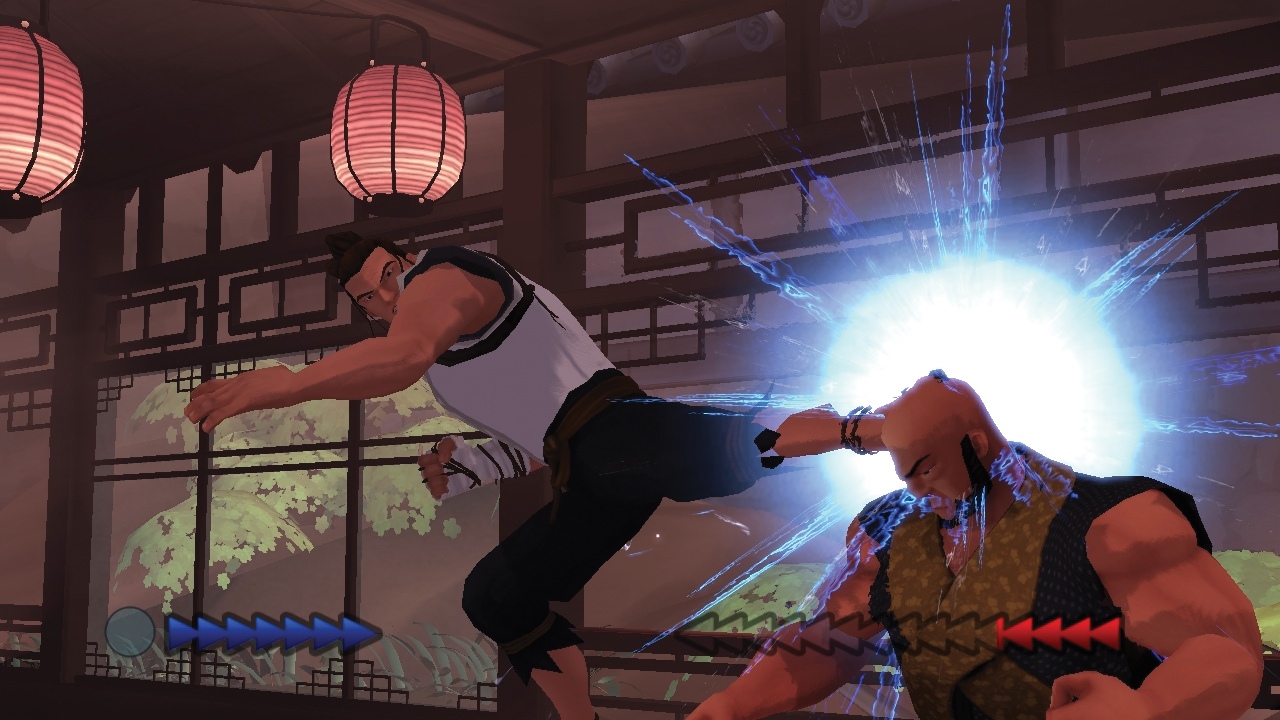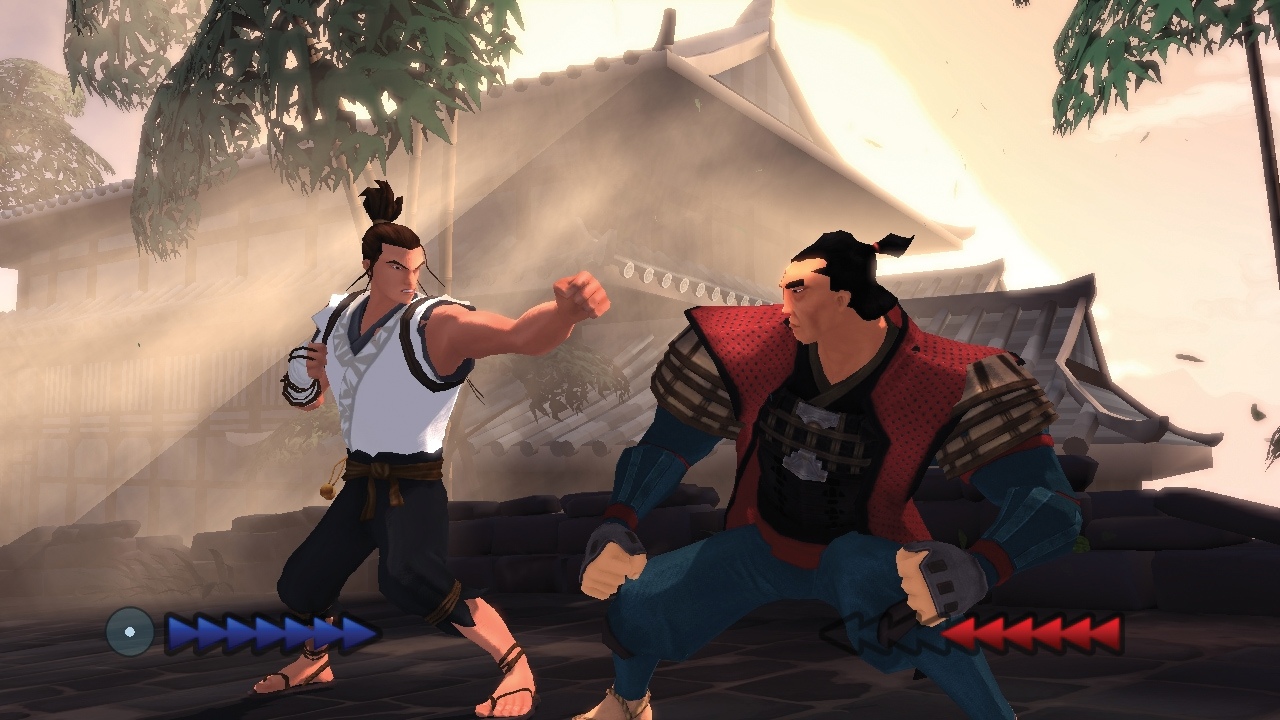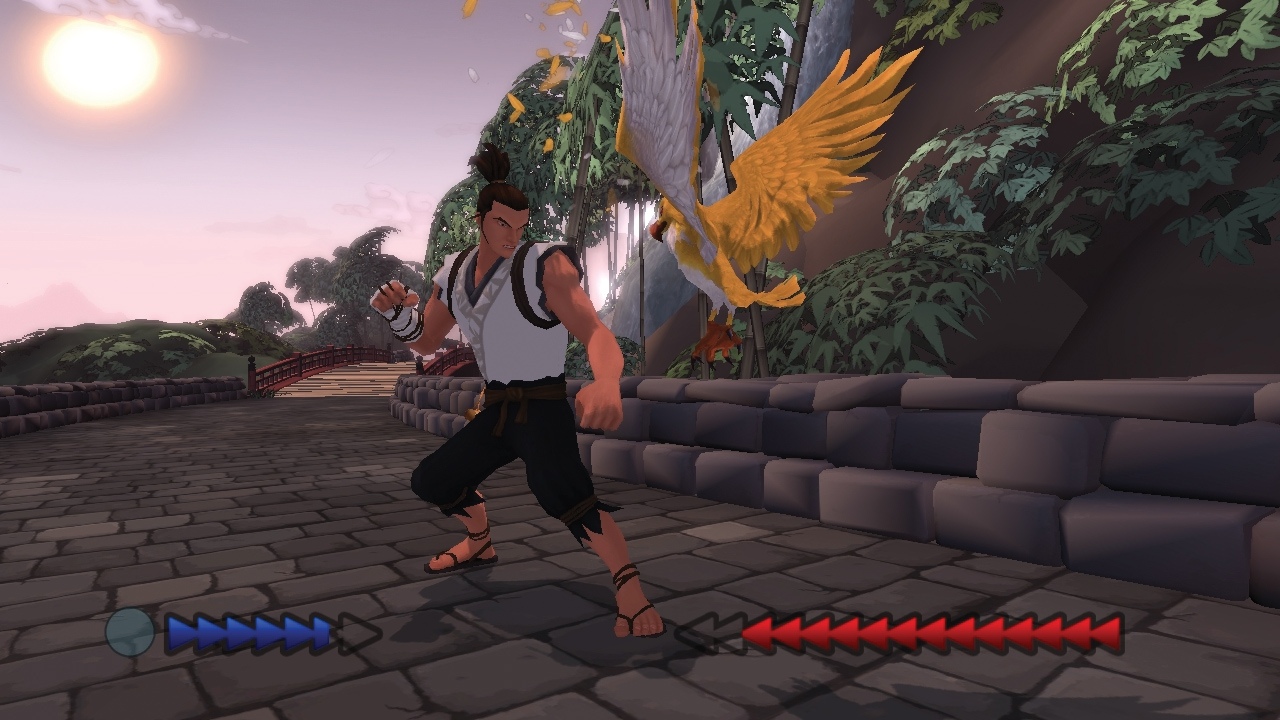It's best to approach Karateka much as you would a haiku. Its short narrative follows the lives of three heroes that parallel the three lines of a haiku's English transliteration. In an earlier, simpler time, its short bursts of gameplay were exciting--innovative, even--but its charm doesn't hold up so well in an era that prefers long-winded heroic epics. There's much to appreciate in its unique mix of lush animations and nostalgic gameplay, but they're fleeting pleasures, much like a lotus that wilts not long after it blooms.

Karateka first saw life in the late months of 1984, when the craze over The Karate Kid was still sweeping the country after the film's release that summer. It was innovative at the time, designed by Jordan Mechner of Prince of Persia fame, complete with engaging cinematics and fluid combat movements that once seemed impossible considering the limitations of the Apple II. As was par for the course in those days, the story involved little more than saving the princess Mariko (a blonde, much like the hero himself) from the clutches of the evil warlord Akuma, but the whole experience benefited from touches of humor, such as the way Mariko could kill the hero in one hit if he had the gall to approach her in fighting stance. Elsewhere, if you inserted the floppy disk upside down, the action on the screen would unfold upside down.
In the modern incarnation, that humor is gone. Drawing on Karateka's inherent simplicity, Mechner instead attempts to transform the whole into an emotional mix of artistry and fun. Gone are the Caucasian protagonists, for instance; in their place, a cast of Japanese warriors and monks spar among pretty cel-shaded temples and pathways. It works, for the most part, and the occasional flashes of stunning scenery make it easy to appreciate. Even though you watch the heroes you control run up arcing passageways, Karateka is as bound to rails as Japan's Shinkansen lines, and you'll find that you can't even retreat to pick up the health-granting flowers your heroes may have passed along the way.

Still, the three heroes provide this incarnation's most intriguing feature, with each hero granting access to a different ending. The first hero is Mariko's true love, a dashing fellow with a ponytail who can take only about half as many hits as the others. Reaching Mariko with him affords the best ending, while his comparative lack of hit points afford the most challenge. Should he die, though, the monk steps up in his place. Karateka, already easy, suddenly becomes easier, because the monk can take many more hits than Mariko's dashing but flimsy boyfriend.
But should you fail even with him, you can still fall back on the hulking brute, whose goofy animations and massive girth are reminiscent of Popeye's Bluto, and seem out of place in this serene animated world. He has a good heart--as you see in a brief flashback that reveals his love for Mariko--but it's clear from her conflicted gratitude at the end that he's the last choice in both position and preference.
The problem, unfortunately, is that all three heroes play the same. Karateka's combat never gets more difficult than taking on the foes who confront the heroes one by one and then timing your blocks, which then allows you to whale on them through normal and heavy attacks. Perform well enough at this, and you fill a chi meter that grants access to a helpful stun. The only difference between the three protagonists lies in the true love's meager health pool. You can master this system on your very first playthrough, especially once you realize that the musical cues in the background announce the pattern of incoming attacks in most fights. Three plinks on a shasimen, for instance, heralds three incoming blows; a lazy string glide heralds a massive single attack; and a flurry of notes announces a rapid cascade of punches and kicks. While not without a welcome dash of beauty, combat is so predictable that only Akuma's huge health pool poses any real threat, along with Akuma's hawk, which torments the heroes periodically as they make their way up to Akuma's citadel.

In Karateka's favor, the game lasts as long as it should considering the simplicity of its design; the downside is that this amounts to a mere 30 minutes. That's all, and for 800 Microsoft points to boot. At that price, it's worth wondering why Liquid Entertainment didn't include the original as a bonus for completing the achievements. There's minor replay value in store if you would like to reach Mariko with her true love or win the game without ever letting the foes land a hit, but if you're particularly focused, it's possible to score the majority of the 12 achievements in a single playthrough.
Such a short running time wouldn't necessarily be a bad thing, if the overall experience lingered with you long after its completion. It's a shame, then, that Karateka's easy combat is so disappointing. Even the rich cinematics don't lift Karateka to greatness, because they depend on a sentimental and predictable "save the princess" trope that never manages to distinguish itself regardless of the ending. For all that, it's not without its charms, albeit fleeting ones.